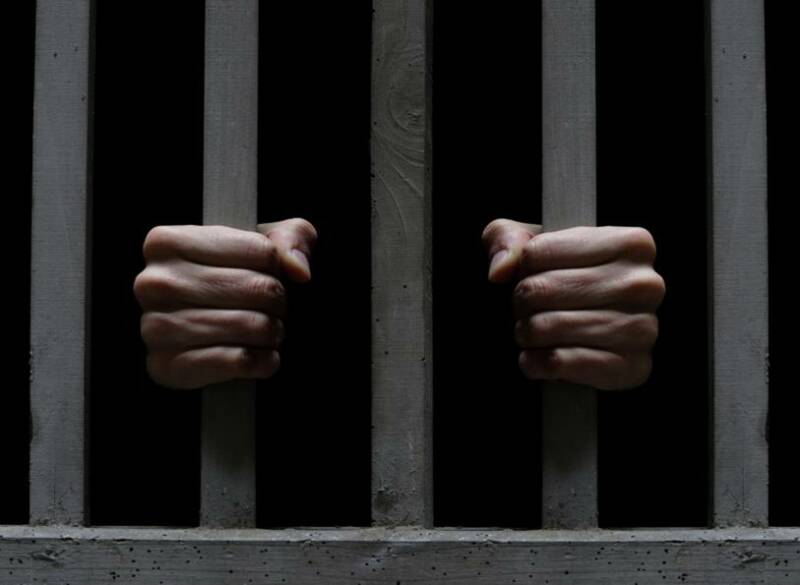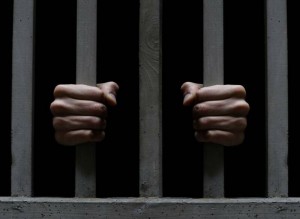Uncovering a Crisis and its Call to the Church – by Cynthia Holder Rich
Read Elizabeth M. Bounds’ Essay, “The Wages of Sin…Are Pris0n”
Read Reginald Smith’s Essay, “A Different Path!”
A crisis, unseen and misunderstood
There is a crisis in our country. While it has gained attention in some quarters, many people in the nation are either unaware of the crisis, or don’t see the situation as a crisis. Whether or not people know – and whether or not people understand – the crisis continues to drain life from a great number of people, families, communities, states and the nation.
I refer to the state of incarceration, criminal justice, and the growth of the prison-industrial complex in the US. Later this week, two others will join me in discussing the crisis, and how this crisis calls to those who follow Jesus. For my part, I introduce, in brief, issues of race and mental illness in relationship to incarceration, the impact of these on life, and how the church is called to respond.
Race
If you are African-American, male and living in the US, you are much more likely to go to prison than to go to college. This has been common knowledge among African-Americans for some time, but for a variety of reasons, undoubtedly including continuing prejudice and preconceived ideas about the other, the loss of life and health for people, families and communities created through this reality has gone unnoticed. Worse yet, for some it is unremarkable. In a context where criminals are apt to be pictured as dark-skinned across a host of media outlets, and where segregation largely makes the diversity of ways of life incomprehensible and invisible to many in the dominant group (i.e., people whose features look like mine,) the fact that prisons are filled with African-American men will not surprise nor upset those who have not explored the reasons why.
I have written elsewhere on the relationship of race and incarceration. A variety of “wars on crime”, mandatory sentencing laws, policing patterns in poor neighborhoods, the rise of prisons as an economic and employment growth industry, and the practice of electing judges all play a role. Undeniably, racism and racial profiling are also factors; the practice of “driving while black” continues to put African-Americans, particularly men and boys, at risk of being stopped and having both their vehicles and their persons searched. This is true, despite law and court officials demonstrating by research that white men are more likely to use drugs than African-Americans. Celebrity does not give Black men a pass, either. NFL player Hines Ward’s recent arrest, where he was forced to the ground and handcuffed at gunpoint, is an all-too-common experience for African-American men, no matter the size of their bank account or reputation.
But researchers name the War on Drugs as the most effective tool in the imprisonment of African-American men. Michelle Alexander, faculty at Moritz College of Law and the Kirwan Institute for the Study of Race and Ethnicity at Ohio State University, argues compellingly on this issue in her new book, The New Jim Crow. Alexander sees imprisonment, and even arrest, of African-Americans (mostly men) functioning as the Jim Crow laws of old – i.e., as a strategy for social control. This has implications for housing, employment, family life and custody of children, voting and other civil rights, and military service, and the capacity to function in other arenas of life as well. And, Alexander argues, the War on Drugs is the primary current strategy to control African-American men and communities, and to keep them out of power. Renay Patterson-Scott, in a web article for the Kirwan Institute site, sees the US War on Drugs as “an unconstitutional war on African-Americans”.
The impact of this on African-American families and communities is vast and profound. The loss of men in families and communities, and the loss of models for how men can offer leadership, mentoring, care and support, has produced staggering results, and continues to feed preconceived racist ideas of the nature and substance of African-Americans. In a new report entitled Misplaced Priorities: Over Incarcerate, Under Educate, the NAACP offers important research on the social impact and relationship between two components of public spending in recent decades: increased funding for prisons and decreased funding for schools. I will leave the issue of prison spending to others to explore; the impacts of governmental decisions, local and national, are clear. The crisis and its urgency are masked to many through a lack of awareness, and people who are ignorant to its causes and impacts remain silent.
Mental illness
Diagnosable mental illness affects over a quarter of people living in the U.S. in any given year.[1] Mental illness constitutes a major US public health issue, which has become a public health crisis. The passing of the Community Mental Health Act of 1963 (CMHA), which sought to move care from state mental hospitals to community-based centers, has resulted in a much larger number of people with serious mental illness who have nowhere to go. While deinstitutionalization was a good goal, it has rendered many people with mental illness across the U.S. homeless. And while many people with mental illness live on the street, a great number also have found a home of sorts in the correctional system. Hundreds of thousands of people with mental illness in the U.S. have been convicted of crimes and incarcerated. The result is that jails and prisons have become the largest providers in the US of mental health care.[2]
Many researchers see this outcome as a direct result of deinstitutionalization mandated by the CMHA, and the subsequent lack of adequate funding transferred to community-based models of mental health care. Because services offered are inadequate to deal with the mental health care needs present in the community, and because the bureaucracy one must navigate in order to get help has grown both large and complex, people whose perceptive capacities are impaired are often not able to access the care needed to protect them and those around them. Thus, in many cases, incarceration has become the only option to keep communities “safe” from people with mental illness. But while people in communities may feel safer when this option is exercised, in truth, incarceration often makes a person with mental illness sicker, and prison staff are by their own admission ill-equipped to identify, treat, or control prisoners with mental illness. People with mental illness who are released from incarceration into the community are very likely to re-offend, sometimes violently, because their illness has been worsened by the experience of incarceration and the lack of treatment during, and often following, incarceration. So in truth, neither people with mental illness nor the communities with whom they live are made safer by the practice of exclusion through incarceration.
The Call to the Church
Jesus made this simple – “I was in prison”, and “I was sick”, and “you visited me” (Mt. 25:31-41). Prisons were filled with debtors, whom Jesus approached with – and called those who followed him to approach – with forgiveness (Mt. 6:9-15, 18:21-35). Jesus healed a number of people over his lifetime, so it’s clear that the church has a built-in relationship with those who are sick.
Okay, there’s the mandate – and the chasm is vast between us and commandments to love, care and forgive.
Jesus had at least one more thing to say, and he, along with some other biblical actors, said it often: “Be not afraid.” (Mt. 14:27, 28:10, Jn. 14:27). Fear of the other paralyzes us and results in the loss of capacity to think and to act in faith. Fear of the other is at the base of racism and prejudice, and those who have made decisions count on this fear to silence those who would speak out and work for justice.
We are called to research, to read, to learn, and to discover the reality behind the crisis that has ravaged communities for a very long time. This is not God’s intent, and God has given us the power to intervene and to bring good news and peace to those in need. We who follow Jesus must not be silent in the face of loss of life. As sure as we have responded to earthquakes in Haiti and Japan, famine in Africa and tornadoes in the southeast, we must answer the call as people of faith to respond to this.
On Wednesday, Elizabeth Bounds and Reggie Smith join the conversation.
Read Elizabeth M. Bounds’ Essay, “The Wages of Sin…Are Pris0n”
Read Reginald Smith’s Essay, “A Different Path!”
[1] National Institutes of Mental Health, 2009.
[2] Jamie Fellner, “A Corrections Quandary: Mental Illness and Prison Rules”, Harvard Civil Rights-Civil Liberties Law Review, vol. 41, 391-412, 2006.


